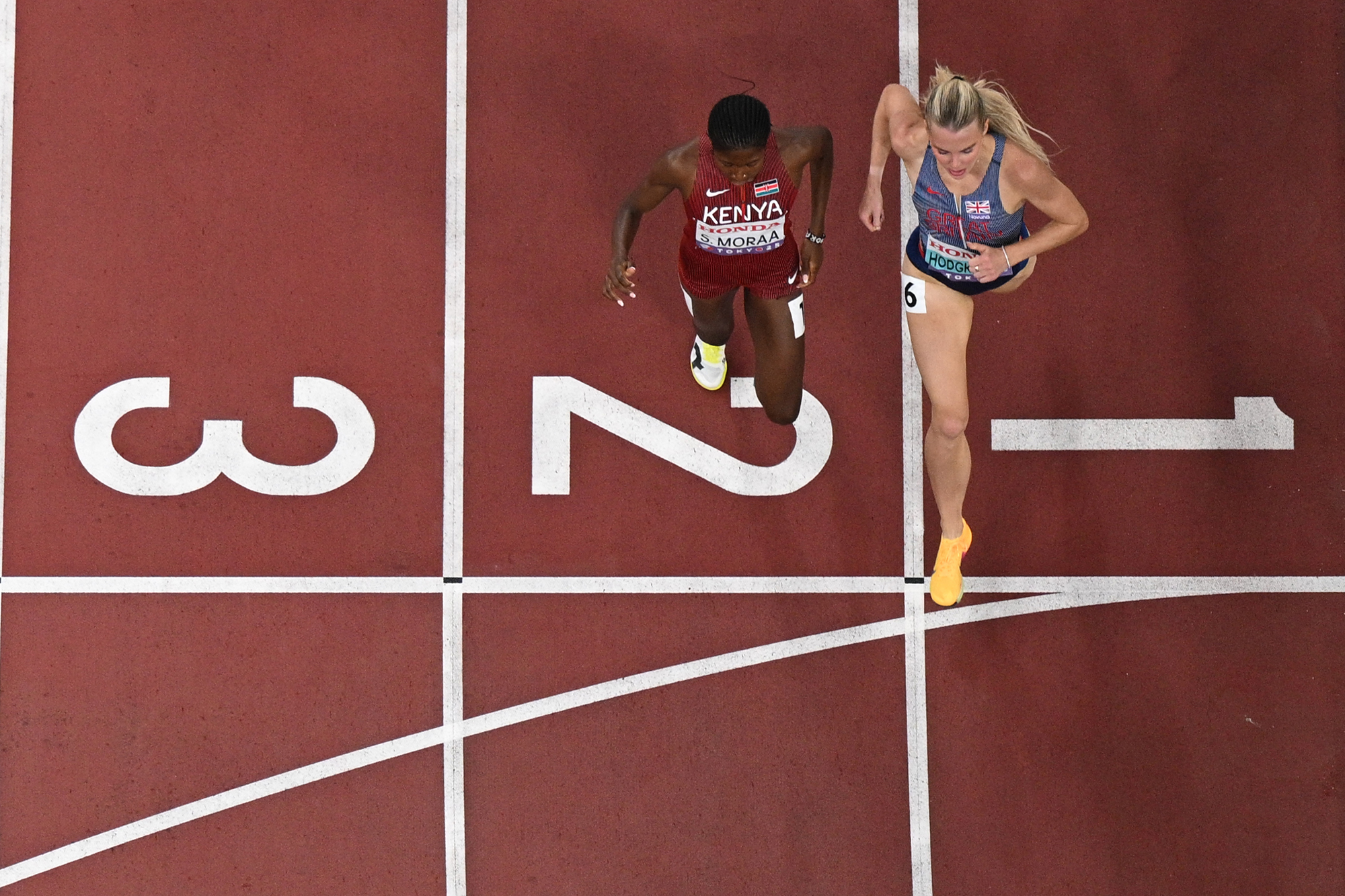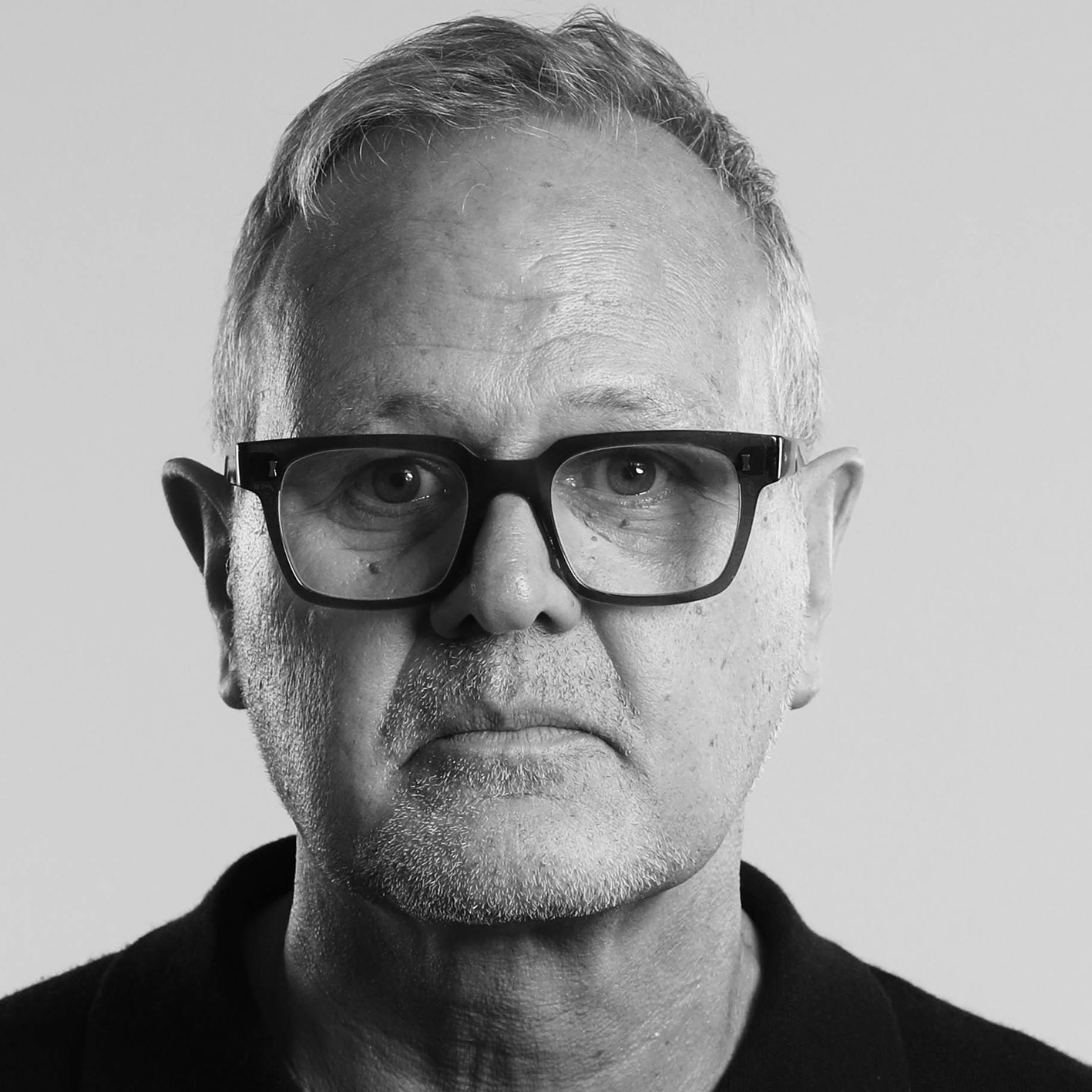When Sally Gunnell was reminded this week that she is the only female athlete to have held Olympic, World, European and Commonwealth titles concurrently, she smiled and said: “Keely Hodgkinson will change that.”
Rare is the British track and field star who transcends all doubt among the cognoscenti. As Hodgkinson herself said after winning her 800m semi-final at the World Championships in Tokyo, “it’s tough out there, man.”
Equally salient is what a great men’s middle-distance runner, Steve Cram, said as Hodgkinson crossed the line in Paris to become Olympic champion.
“She’s so good. She’s so much better than everybody else,” said Cram, who followed Seb Coe and Steve Ovett in a gilded age for British running in the 1980s.
By 11.37am this Sunday we will know whether Hodgkinson has seen off the threat of her compatriot Georgia Hunter Bell. Next year brings the targets that could complete the set: the European Championships and Commonwealth Games.
The World Indoor Championships is another frontier. And Hodgkinson thinks she can knock down the big barrier in women’s 800m running and go below 1m 54 secs. “I want to be one of the best athletes Britain has ever seen and I know I can do it,” she says.
At 23, she is ahead of schedule to complete the grand slam set. As she said after gliding into the Tokyo final: “This my fifth global final, at 23. I’m quite happy with that, it’s quite an achievement.” Her positivity and self-assurance are endearing.
Hunter Bell has stepped down from her 1,500m specialism to take on Hodgkinson in the 800m. At the Moscow Olympics in 1980, Coe was supposed to win the 800m but lost the race to Ovett. The 1500m was mapped out as Ovett’s most likely victory but Coe avenged his defeat in the shorter race. The nation split down the middle between Coe and Ovett camps. The greatest rivalry in British sport was daily news.
Pinning that comparison to Hodgkinson v Hunter Bell is premature but there is an undeniable enchantment to Hodgkinson’s quest to add a World Championship gold to the two silvers she already owns – and complete the Olympic-World double.
Everything about her record, age and outlook says Britain has a track and field luminary to stand alongside Gunnell, Kelly Holmes and Paula Radcliffe. Her whole story radiates authenticity, from her training sessions at Wigan Warriors to the pithiness of the ambitions she conveys to her team: “Guys we’re just dealing in wins and medals here.”
Newsletters
Choose the newsletters you want to receive
View more
For information about how The Observer protects your data, read our Privacy Policy
The call room of a global championship is where Gunnell remembers physically bigger opponents trying to intimidate her with their confidence and flamboyance. On Friday, in the Tokyo race waiting room, we saw Hodgkinson calmly applying make-up to her face while keeping cool in an ice vest.
“Staying strong in those moments is what I’m quite proud of,” she told Jessica Ennis-Hill, a fellow Olympic champion, in an interview before Tokyo started. She also said, “nothing’s going to stop me” in a way that left no room for doubt.
There is a marvellous blend of power, rhythm and majesty in Hodgkinson’s running. Across the ages many British athletes have traded on doggedness and desire. Kelly Holmes, the 2004 Olympic 800m and 1500m champion, threw herself at races. Holmes was 34 by the time she finally found a way to win big – the oldest Olympic champion in either category. Hodgkinson, 11 years younger, glides into races with the kind of proprietorial air only the super-talented can pull off.
She could just as easily be called Steely Hodgkinson. Alongside the poise is not a will to win so much as a need – the counterpoint of which is always a loathing of defeat, or the idea of it. This fierce appetite is another elevating quality of her personality and is easily visible to her audience.
All this hinges of course on her completing her Tokyo story this weekend, not losing out tactically, as Coe did in the 800m in Moscow, and not paying the price, at the worst possible moment, for the 376 days she spent off the track with injury.
The formbook says that’s unlikely. There was no tentative return from two hamstring tears. On the sidelines her camp remarked on her “unpredictable moods” and her coach Trevor Painter bought her a large crystal from his sister’s shop to help keep her calm. “I definitely spiralled a bit,” she told Ennis-Hill. But then in Silesia in August she won in a world leading timer for the year of 1m 54.74 secs. (“I was where I left off after Paris.”).
Gunnell, the first British woman to win Olympic gold on the track since Ann Packer in 1964, kept racing until she was 30. Holmes peaked in her mid-30s. Hodgkinson has the chance to progress from the near-misses of her early Twenties to generational dominance over one of track and field’s most glamorous distances. Her European and Commonwealth campaigns would attract the kind of vast following usually denied to the third and fourth most prestigious of the big four titles.
It would also draw the kind of appreciation that’s extended to only a small set of British sportsmen and women. The obvious comparison is with the England women’s football team. You could imagine Hodgkinson playing for the Lionesses. The pantheon in British track and field is led by Ennis-Hill, Gunnell, Denise Lewis, Mary Peters, Mary Rand, Holmes, Radcliffe and Tanni Grey-Thompson (in Paralympic sport). In gold medal language, Hodgkinson is young enough to surpass them all.
Every now and then someone comes along who is as much a societal embodiment as a successful sportswoman. If she emulates Gunnell, who won everything in the 400m hurdles, or just keeps winning Olympic and World golds, Hodgkinson’s light will glow beyond her sport. All of which is said without a single use of the shorthand applied to people such as her: ‘Britain’s golden girl.’ She's not from central casting.
Photo by Jewel Samad/AFP via Getty Images
•
This article was amended on 24 September 2025. An earlier version incorrectly said that Sally Gunnell was the first British woman to win a track and field gold since Ann Packer in 1964. She was in fact the first to win Olympic gold on the track since Ann Packer.



